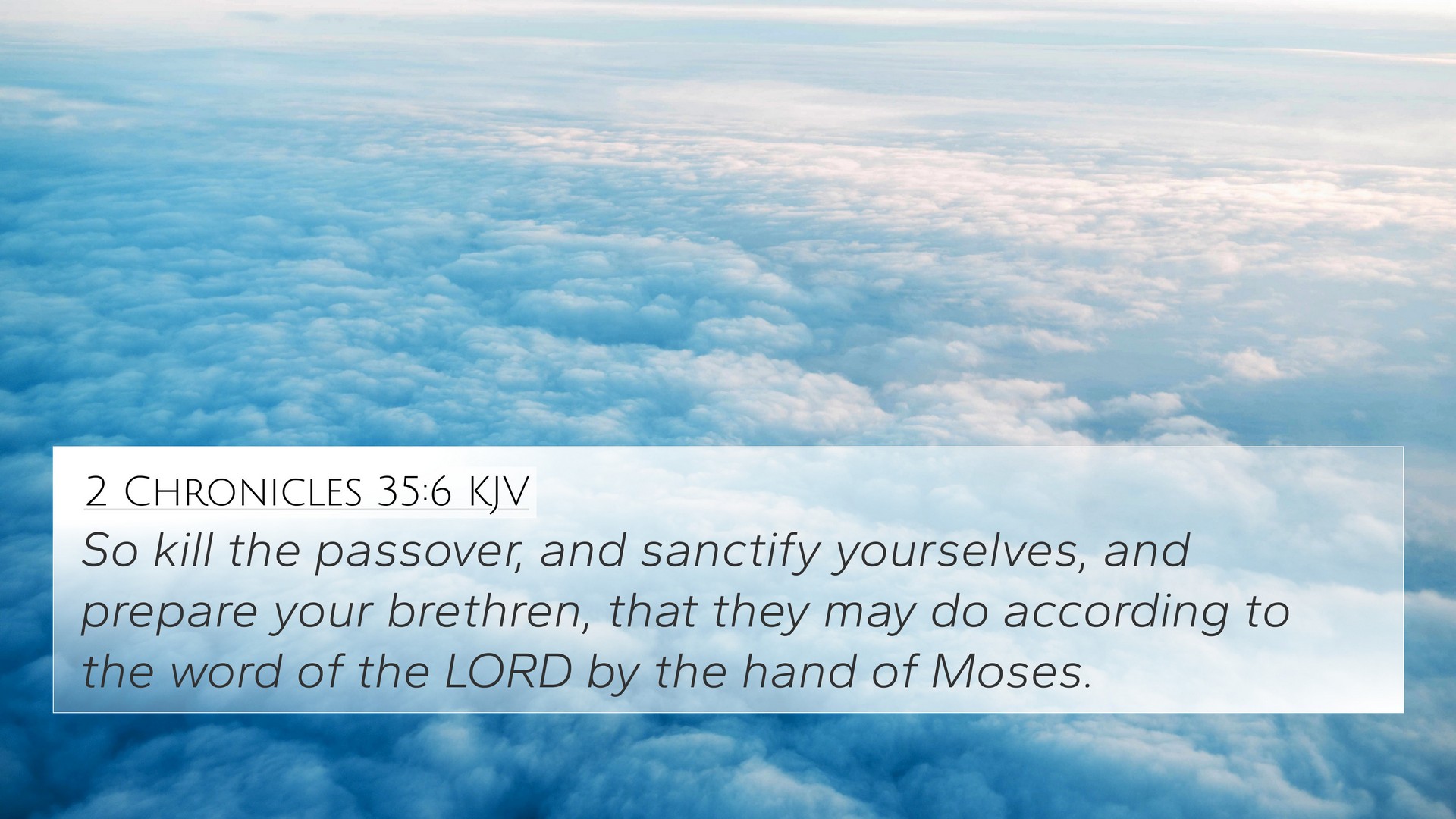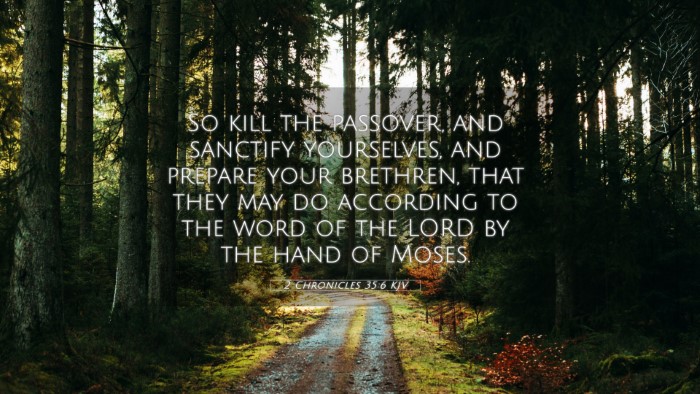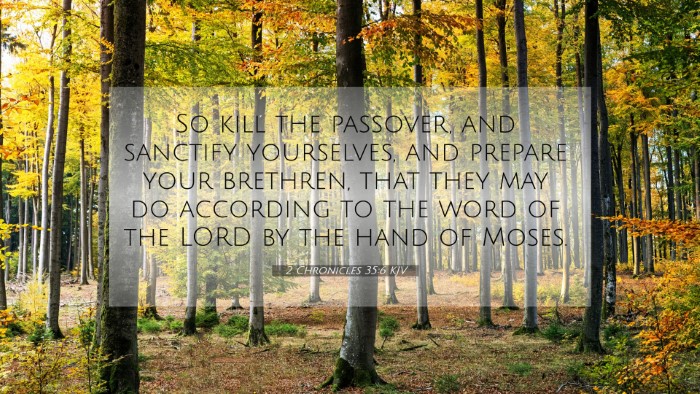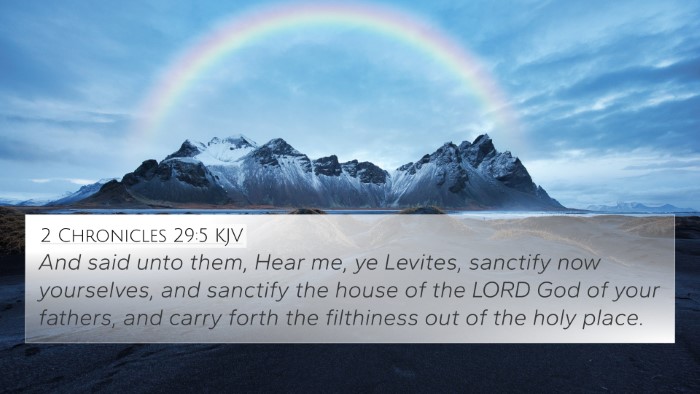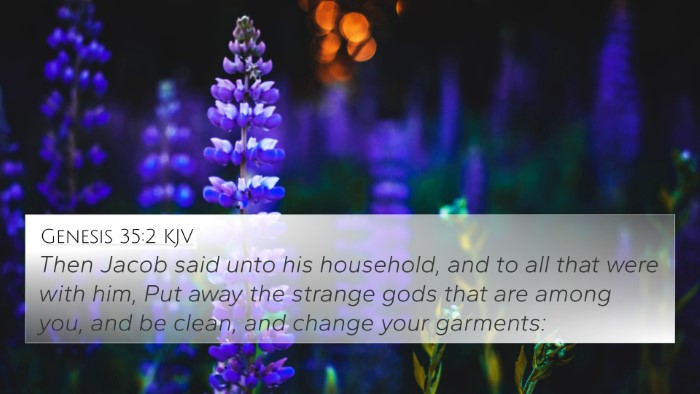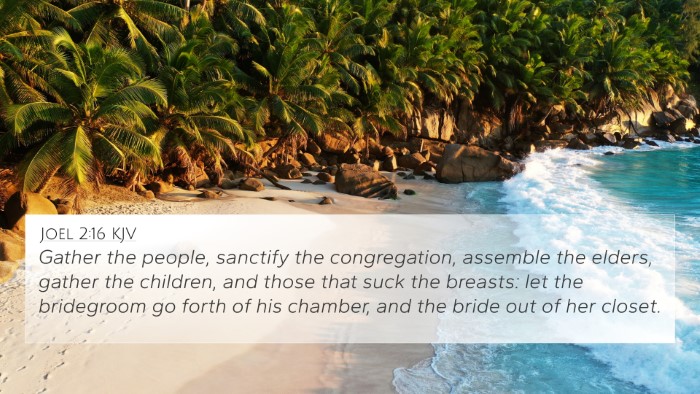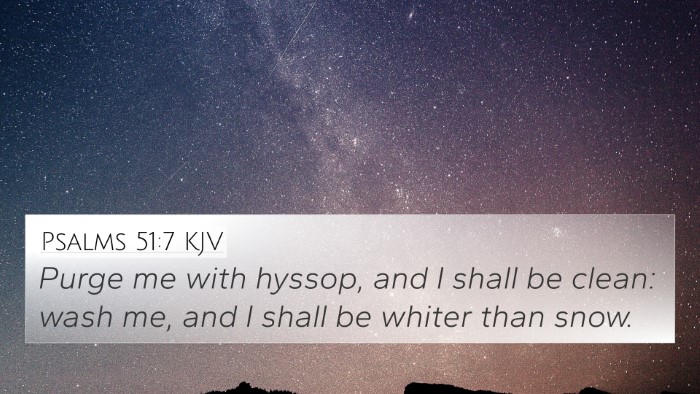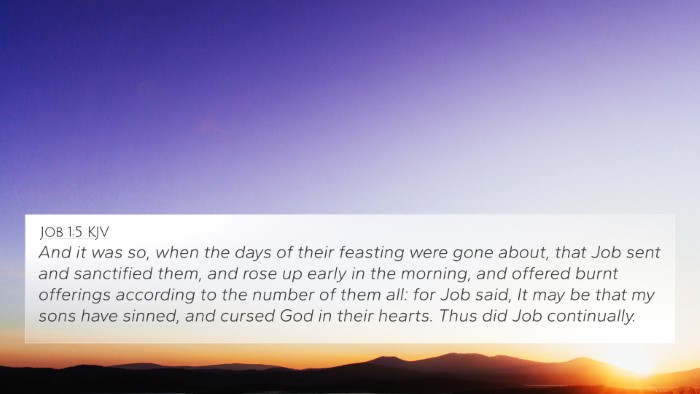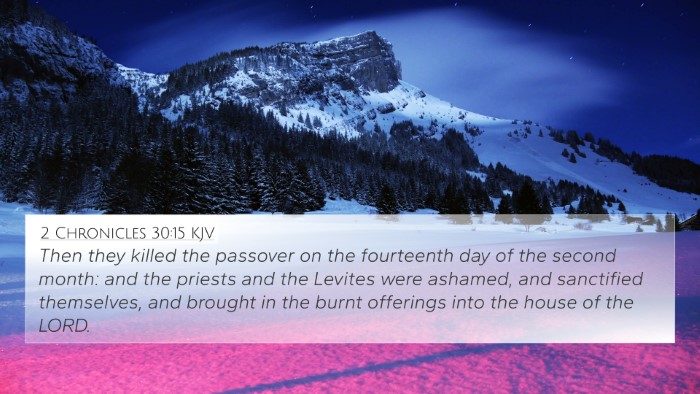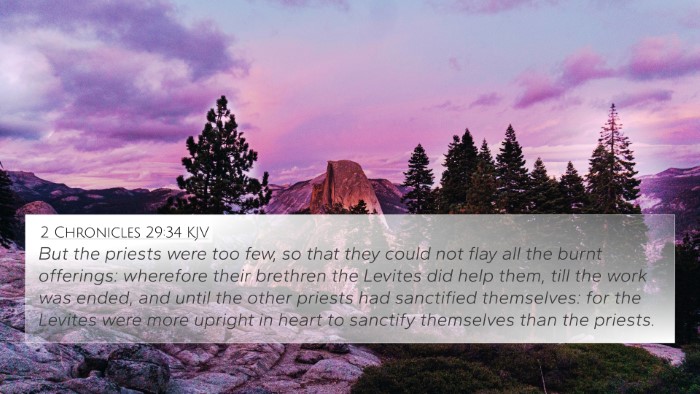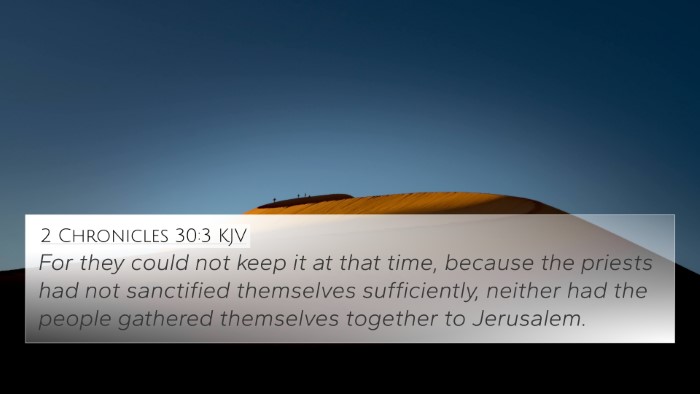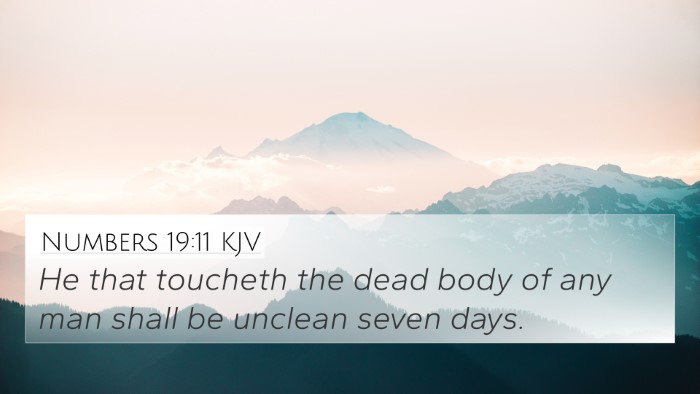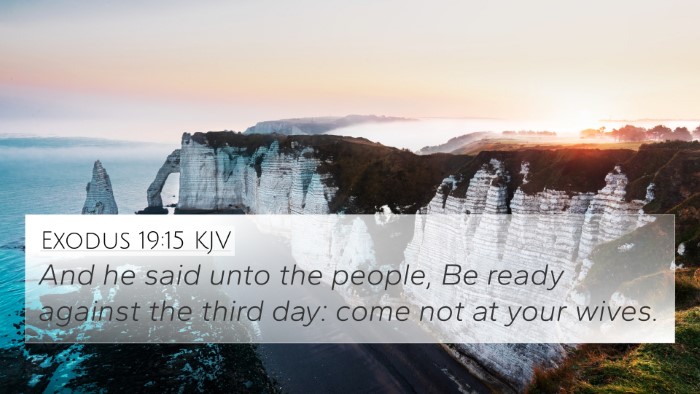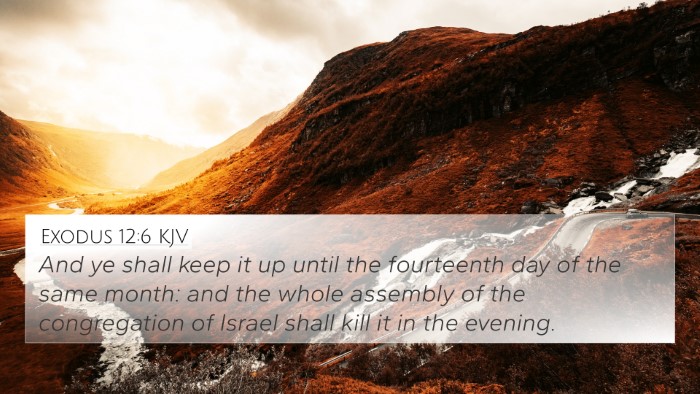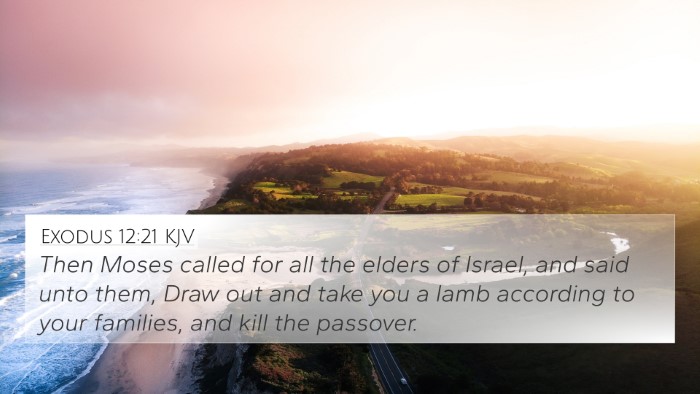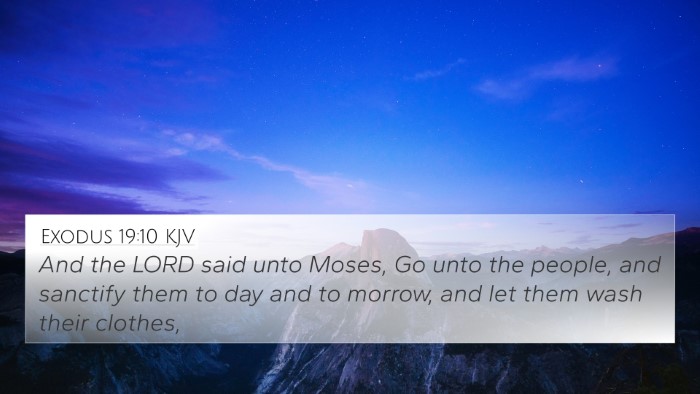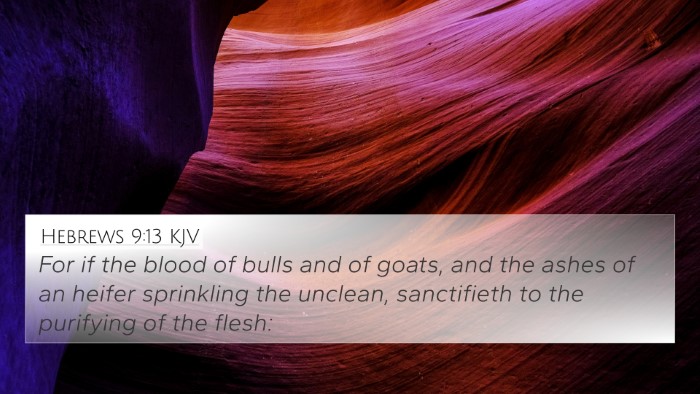Understanding 2 Chronicles 35:6
2 Chronicles 35:6 states, "Slay the passover offering, and sanctify yourselves, and prepare your brethren, that they may do according to the word of the LORD by the hand of Moses." This verse outlines the preparation for the Passover celebration during King Josiah's reign, emphasizing the importance of sanctification and preparation before performing sacred rituals.
Context and Background
This verse is set during a pivotal moment in Judah’s history. King Josiah was known for his religious reforms aimed at returning the people to the worship of Yahweh. In the context of 2 Chronicles, the Passover is not merely a cultural festival but a vital spiritual act meant to reaffirm the covenant between God and His people.
Key Themes and Insights
- Sanctification: The command to sanctify oneself underscores the necessity of purity when approaching God. This reflects a larger biblical theme that connecting with the Holy requires preparation of the heart and spirit.
- Community Involvement: The mention of preparing the brethren highlights the communal aspect of worship. It reinforces that faith is not solely an individual journey but one best shared in community.
- Obedience to God's Word: The directive to act according to the Word of the Lord underscores the importance of scriptural authority in worship and practice.
Insights from Public Domain Commentaries
Matthew Henry's Commentary
Matthew Henry emphasizes that this verse captures a time of religious revival. He notes that Josiah's efforts to restore the proper observance of Passover involved deep commitment not just from the king but from the whole nation. He mentions that such moments of revival can only come through a return to the foundational practices of faith, guided by God’s Word.
Albert Barnes' Notes on the Bible
Albert Barnes provides a practical perspective, explaining that the preparation of the people reflects the seriousness with which divine ordinances should be approached. He highlights the importance of ceremonial practices in ancient Israel and how they served to remind the nation of their covenant relationship with God, emphasizing the connection between personal holiness and corporate worship.
Adam Clarke's Commentary
Adam Clarke elaborates on the historical significance of the Passover as a celebration of deliverance from Egypt. He relates this back to God’s faithfulness and the importance of remembrance in the faith journey. Clark's interpretation suggests that this act of Passover is both a historical commemoration and a present act of faithfulness that involves the new covenant believers today as well.
Biblical Cross-References
This verse relates to numerous other biblical passages that highlight similar themes. Here are selected cross-references:
- Exodus 12:6: Instructions on the Passover lamb.
- Deuteronomy 16:2: Command to observe the Passover.
- 2 Kings 23:21: Josiah's command for a great Passover.
- Isaiah 1:16-17: Call to wash and make clean in preparation for worship.
- Psalms 51:10: Creating a clean heart as a form of sanctification.
- 1 Peter 1:16: Be holy, as I am holy, drawing from the Old Testament's call for holiness.
- Hebrews 9:22: The importance of blood in the covenant, linking to the Passover.
Thematic Connections
This verse can be examined in light of various thematic connections in the Bible, reflecting on the overarching narrative of redemption and holiness:
- The Covenant: The Passover as a sign of the covenant.
- Holiness of God: The preparation required to stand in His presence.
- Community Worship: The importance of gathering for worship and collective sanctification.
Tools for Further Study
For those interested in exploring deeper connections, several resources are beneficial:
- Bible Concordance: Use it to find verses that share themes of sacrifice and sanctification.
- Bible Cross-Reference Guide: A guide to finding connections between similar passages across the scriptures.
- Bible Chain References: A technique for following thematic trails throughout the Bible.
- Cross-Reference Bible Study Methods: Approaches such as thematic studies, verse mapping, and parallel Bibles.
Conclusion
In summary, 2 Chronicles 35:6 serves as an important call to the people to prepare their hearts for worship through sanctification and obedience. The reflections and cross-references provided deepen our understanding of God’s requirements for His people in the context of communal worship and adherence to scriptural mandates. This verse connects us to a larger biblical narrative that consistently calls believers to holiness and remembrance of God’s salvific acts throughout history.
